Kowbojki
Sekcja Kowbojki towarzyszy wystawie Chciałabym być żółtym psem, poświęconej fotografii Lory Webb Nichols (1883-1962) i organizowanej w galerii Studio BWA Wrocław. Wystawę będzie można oglądać w dniach 8.11.2024-23.02.2025, a jej kuratorami są Dominika Prejdová (AFF), Łukasz Rusznica (BWA Wrocław).
Fotografie Lory Webb Nichols dają wyjatkowy wgląd w życie na otwartych przestrzeniach Wyomingu na początku XX wieku. Kobiece spojrzenie Lory, w odróżnieniu od ówczesnych portretów studyjnych, przenika intymny świat fotografowanych postaci, a jej zdjęcia robione są spontanicznie przez osobę znajdującą się w gronie przedstawionych i w centrum akcji. Lora była kobietą niezwykłą; jak rzadko komu udało się jej podążać za swoją pasją i pomysłem biznesowym, aby zostać fotografką, jednocześnie wychowując sześcioro dzieci i zmagając się z ubóstwem przez większość życia.
To także klucz do retrospektywy: filmy pokazujące kobiety idące własną drogą, wytyczające nowe szlaki w pięknej, ale wrogiej przyrodzie pogranicza, współtworzące nowy świat, który przybiera nowe kształty i ustanawia swoje zasady. Dziki Zachód był między innymi okazją do budowania społeczeństwa od podstaw. Wyoming w 1869 roku, jako pierwszy stan, dało prawa wyborcze kobietom. Na zachodzie kobiety rozwodziły się i nie były tak stygmatyzowane jak we wschodnich stanach – tutaj państwo nie chciało brać za nie odpowiedzialności. Mogły zająć się biznesem i stwarzać się od podstaw, stać się self-made women.
W filmach, które pokazujemy w retrospektywie, kobiety odnajdują swoją drogę. Czasem dosłownie, jak pionierki w Meek's Cutoff, które wprawdzie podporządkowują się decyzji mężczyzn o wyjeździe na Zachód, ale to one posługując się intuicją pozostają otwarte na kontakt z kulturą rdzennych Amerykanów.
Bohaterka Wrót niebios, której historia oparta jest na prawdziwej postaci Ellen Watson, chciała rozpocząć nowe życie na pograniczu, a znając swoje prawa, opierała się sprzedaży własnej ziemi potentatom handlu bydłem. Bohaterka Johnny Guitar również nie godzi się na sprzedaż ziemi i działa na własną rękę. Bohaterka The Furies chce mieć taką samą władzę jak mężczyźni i dąży do tego z determinacją. Nawet krucha Marilyn odnajduje siłę, by przeciwstawić się męskiemu światu w Skłóconych z życiem.
The Furies (reż. Antony Mann, 1950)
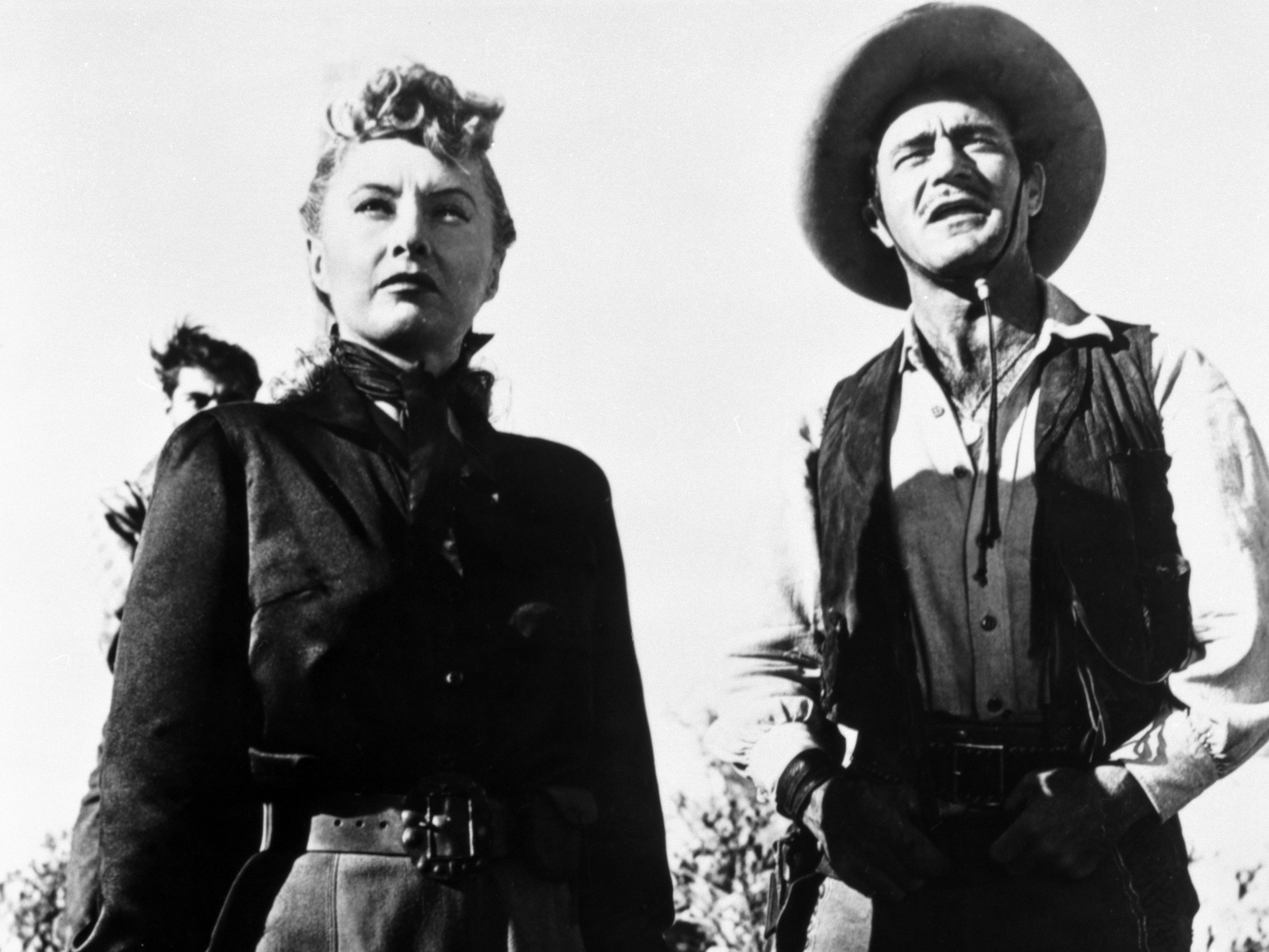
Melodramat i western zarazem, mroczny, psychologiczny i stylowy, inspirowany Królem Learem, ze znakomitymi kreacjami Waltera Hustona i Barbary Stanwyck. Stanwyck gra Vance, upartą córkę bogatego, pewnego siebie ranczera prowadzącego wojnę z Meksykanami, którzy zasiedlili ziemię w Nowym Meksyku. Zostaje wygnana z rodzinnego rancza przez ojca zakochanego w jej przyszłej macosze i postanawia zemścić się na ojcu.
W swoich westernach Mann nie interesował historią czy tworzeniem amerykańskiej mitologii jak John Ford, lecz egzystencjalnymi dylematami. Jego bohaterowie bardziej zmagają się ze sobą niż ze złym antagonistą.
Vance jest na filmy swojego czasu niebywale złożoną i silną kobiecą postacią: wierna i kochająca ojca, ale też manipulująca i żądna władzy, której kobietom odmawiano. W pewnym momencie Vance mówi do mężczyzny siedzącego obok na powozie: „Czy nie masz nic przeciwko, żebym przejęła lejce? Lubię wiedzieć, dokąd zmierzam”.
Johnny Guitar (reż. Nicholas Ray, 1954)
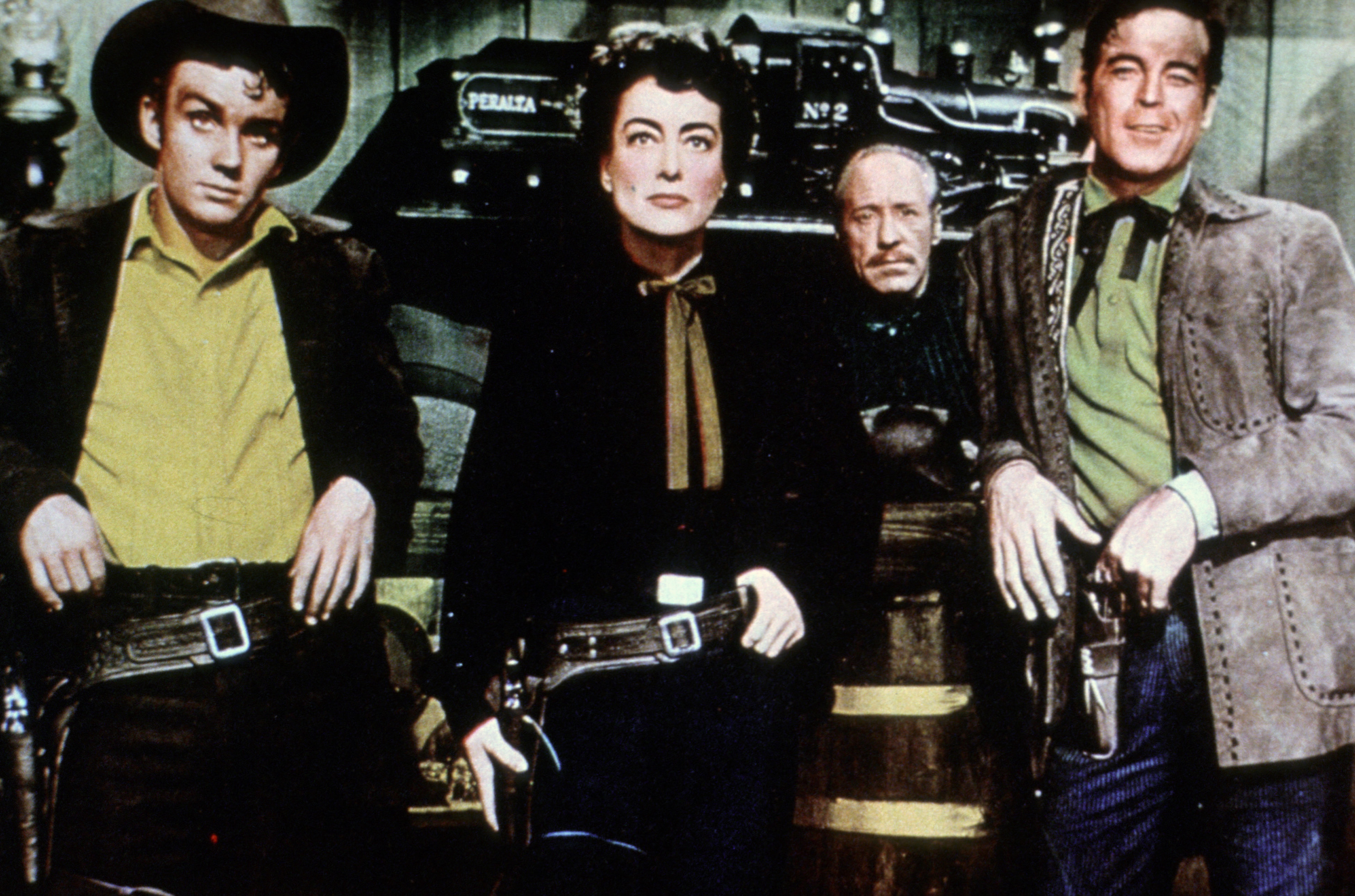
Joan Crawford gra Viennę, właścicielkę saloonu na obrzeżach miasteczka, gdzie ma przebiegać linia kolejowa. Wielki ranczer i lokalna bankierka zasadzają się na ziemię Vienny i spiskują, aby zrezygnowała z biznesu i opuściła miasto. Kiedy w pobliżu zostaje zatrzymany dyliżans (a brat bankierki zostaje zabity), fałszywie oskarżają kochanka Vienny. W sukurs kobiecie przychodzi Johnnyho (Hayden), niegdyś świetny rewolwerowiec, a obecnie gitarzysta.
Jeden z najbardziej stylowych westernów autorstwa klasyka amerykańskiego kina, Nicholasa Raya (Buntownik bez powodu). Powstały nadal w ramach hollywoodzkiego systemu, film jest pokazowym ćwiczeniem stylu i aktorstwa, zwłaszcza Joan Crawford i Sterlinga Haydena. Dialogi zastępuje poezja, a akcja zdaje się posuwać dzięki emocjom.
Crawford sama zakupiła prawa do powieści i zleciła adaptację scenariusza, żeby móc jeszcze bardziej zniuansować swoją postać i z postaci kobiecej zrobić główną bohaterkę.
Skłóceni z życiem (The Misfits, reż. John Huston, 1961)
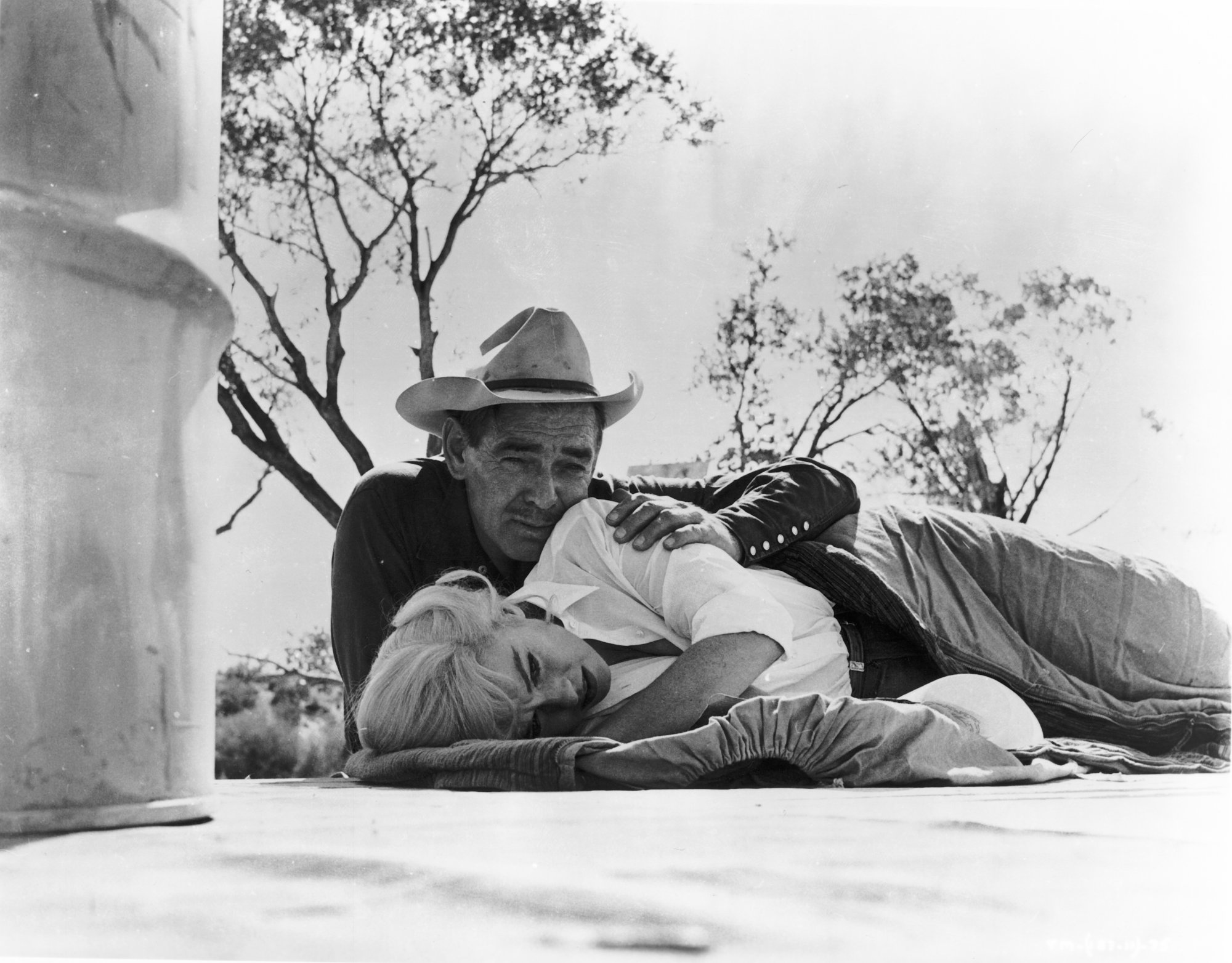
Roslyn przybywa do Reno w Nevadzie, żeby zdobyć szybki rozwód. Spotyka outsiderów: mechanika Guida i starzejącego się kowboja Gaya, którzy zabierają ją do domu na pustyni. Obaj mężczyźni zakochują się w Roslyn. W towarzystwie Perce'a, kowboja wyczerpanego udziałem w licznych zawodach rodeo, wyruszają na poszukiwanie dzikich mustangów. Kiedy Roslyn dowiaduje się, że zamierzają pojmane konie przeznaczyć na karmę dla psów, buntuje się.
Film, który wyprzedził swój czas, uznawany za pierwszy rewizjonistyczny western, napisany z niesamowitą empatią dla wszystkich bohaterów. Elegijny, niezwykle przejmujący, oddający otwarte przestrzenie i magię pustyni obraz. Ze świetnymi Clarkiem Gablem i Marilyn Monroe w rolach głównych.
Jonas Mekas w Village Voice pisał o ostatniej kreacji aktorki: „Jest taka prawda w jej szczegółach, w jej reakcjach na okrucieństwo, na fałszywą męskość, naturę, życie, śmierć – wszystko… To obezwładnia i czyni ją jedną z najbardziej tragicznych i współczesnych postaci współczesnego kina”.
Wrota niebios (Heaven's Gate, reż. Michael Cimino, 1980)
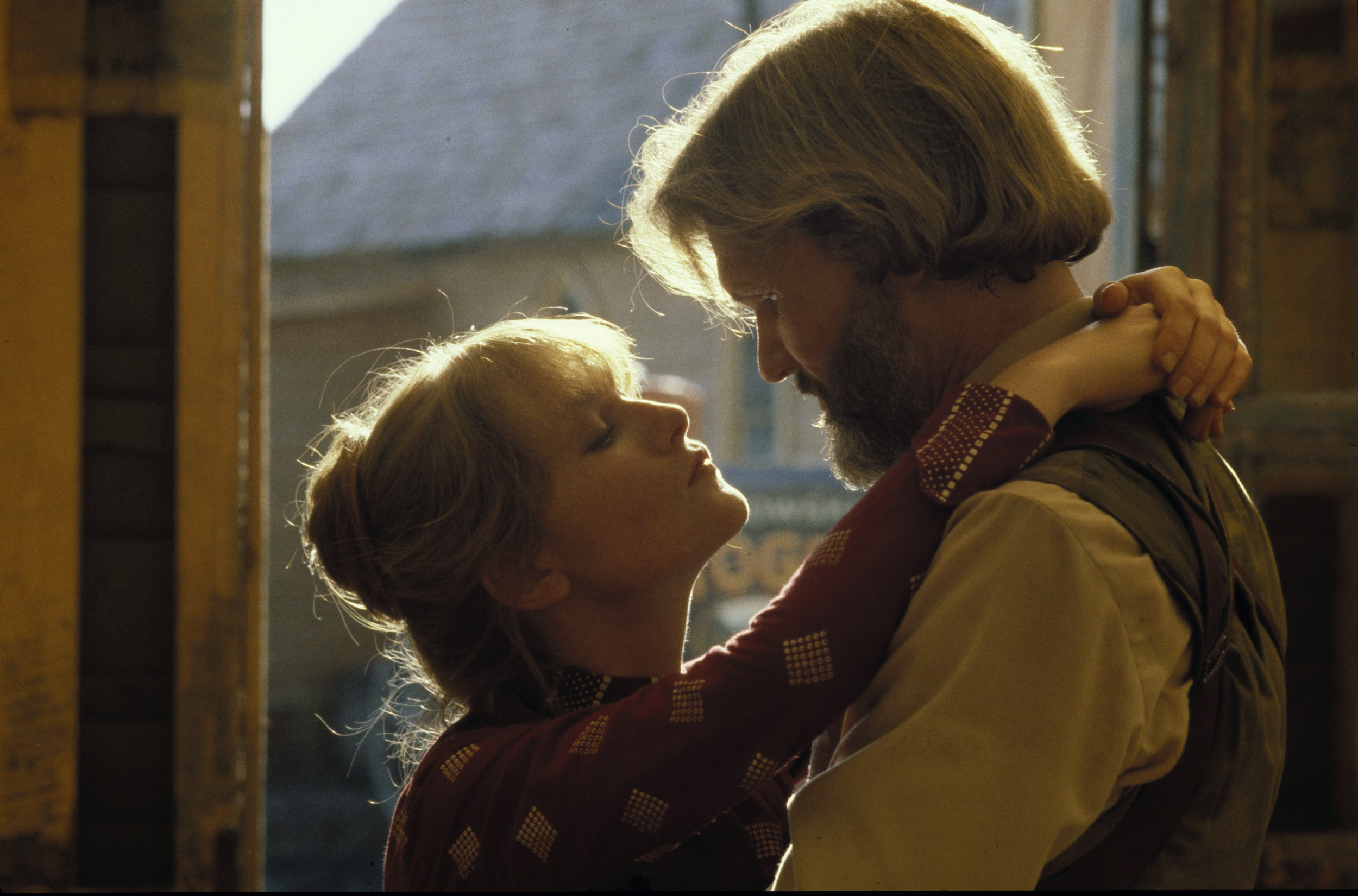
Film inspirowany prawdziwymi wydarzeniami, które miały miejsce w stanie Wyoming w 1892 roku, a które przeszły do historii jako Wojna w hrabstwie Johnson. Misją 52 uzbrojonych mężczyzn było zastrzelenie 70 osób wskazanych przez jednego z przywódców, a jej celem wypędzenie nowych osadników z terenów, które ranczerzy bydła nielegalnie monopolizowali. Wśród atakujących znaleźli się najpotężniejsi hodowcy bydła w Wyoming i wynajęci rewolwerowcy. Nigdy nie ponieśli konsekwencji napadu. Szeryf staje po stronie imigrantów. Jego dziewczyna, Ella, która prowadzi lokalny dom publiczny, również znajduje się na liście śmierci.
Postać Elli jest oparta na autentycznej postaci Cattle Kate, hodowczyni bydła, którą zlinczowano za to, że nie chciała odsprzedać swojej ziemi, a być może dlatego, że była po prostu niezależną kobietą, która próbowała rozpocząć życie na granicy znanego cywilizacji świata.
Najambitniejszy projekt Michaela Cimina. Epicka, pełnokrwista wizja amerykańskiej ekspansji na zachód, który z emocjonalną silą oddaje jej cenę. Niegdyś postrzegany jako porażka, dziś uznawany za arcydzieło.
Meek's Cutoff (reż. Kelly Reichardt, 2011)
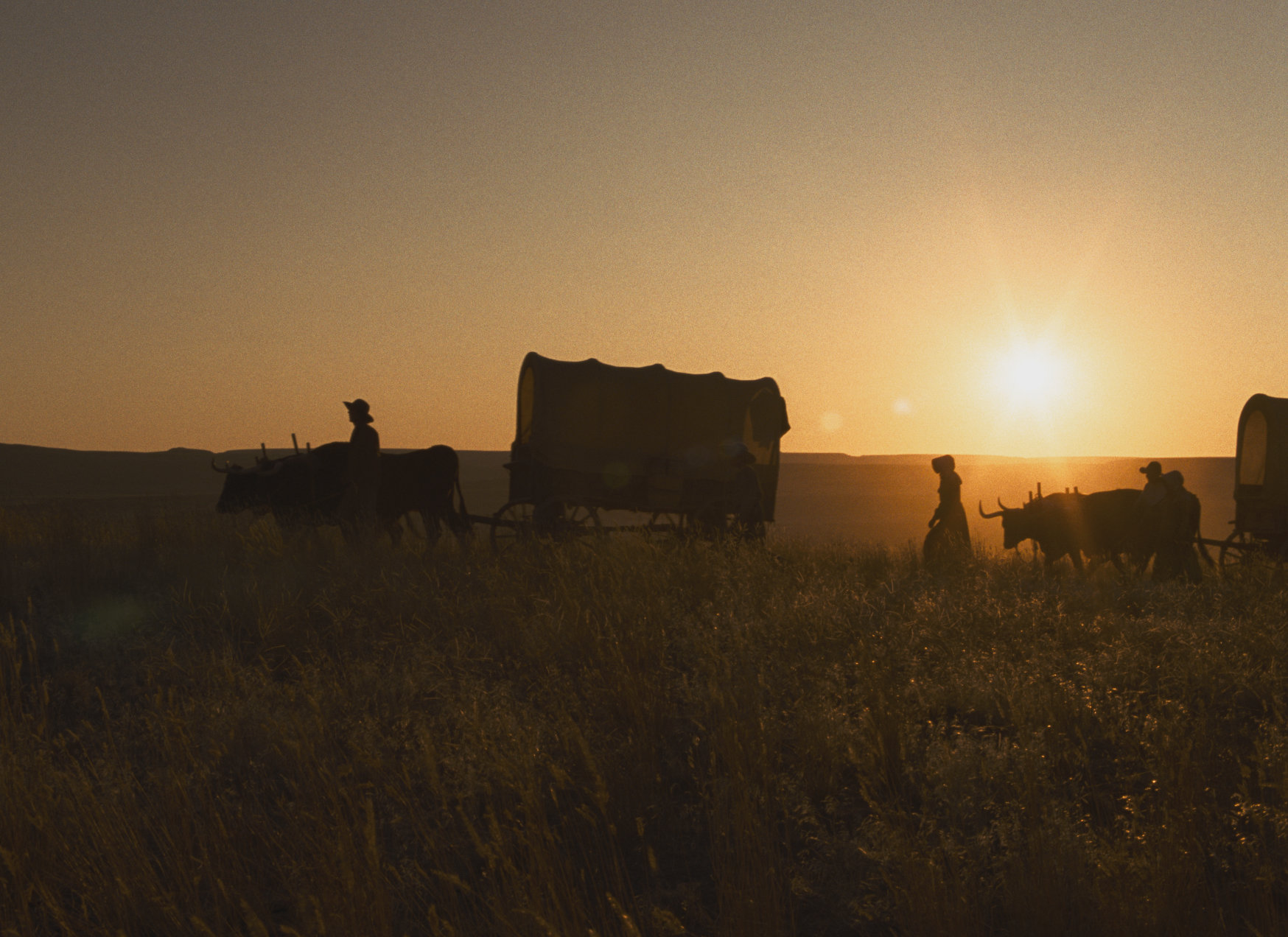
1845. Początki Szlaku Oregońskiego, przez który pierwsi pionierzy idą na Zachodnie Wybrzeże. Trzy rodziny wynajmują doświadczonego przewodnika, Meeka, żeby ich przeprowadził. Twierdząc, że zna skrót, prowadzi ich nieoznakowaną ścieżką prze pustynię, ale gubi się.
Pionierzy są na drodze miesiące i muszą zmierzyć się z niesprzyjającą pogodą, nieznajomym terenem, chorobami i wyczerpaniem, głodem i brakiem wody, a także z brakiem wiary w siebie i w słuszność swojej decyzji. Kiedy spotykają na swojej drodze rdzennego Amerykanina, muszą zadecydować, czy zaufają mu, wbrew uprzedzeniom, czy lepiej trzymać się swojego przewodnika, który zawiódł.
Kobiecy antywestern Kelly Reichardt należy do jej najlepszych filmów. Reżyserce zależało na utrzymaniu maksymalnej wiarygodności i autentyzmu. W kontraście do westernowego budowania mitu, Reichardt stawia na kobiecy mikroświat, pełen zmagań z każdym dniem i jego wyzwaniami.
Dominika Prejdová, kuratorka wystawy i przeglądu
Matronkami sekcji jest kolektyw Final Girls.
Partnerem sekcji Kowbojki jest Filmoteka Narodowa – Instytut Audiowizualny.




